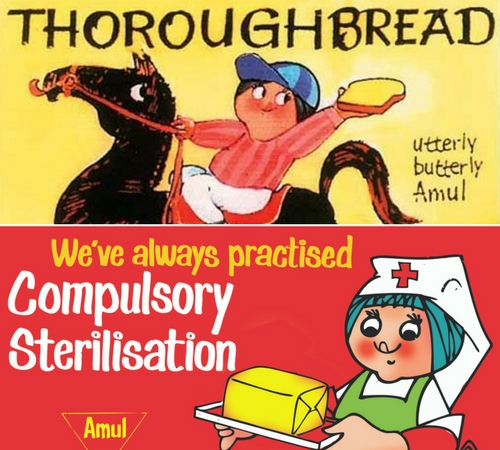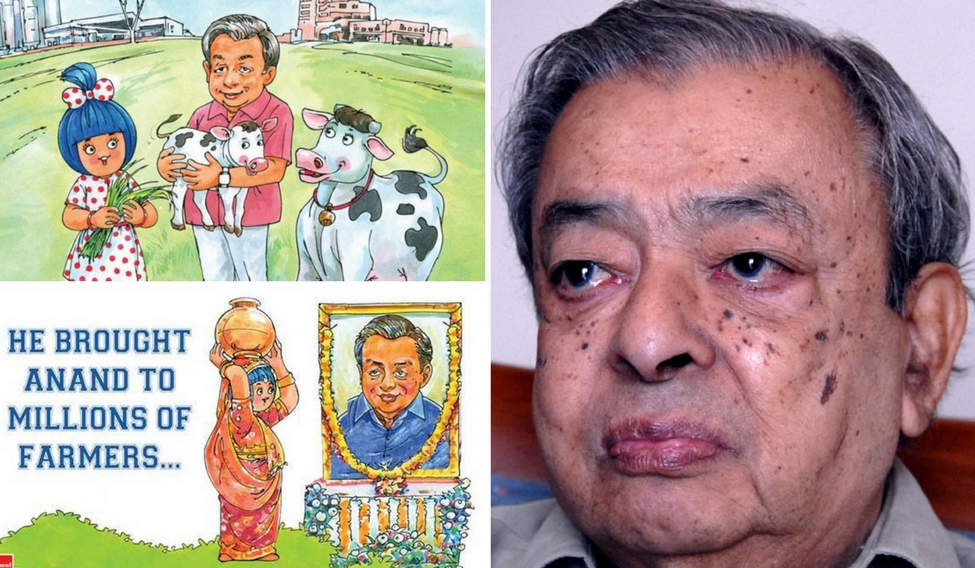It was Dr Verghese Kurien's birthday on Sunday (Nov 26)—the person who masterminded the White Revolution in the country, creating a milk surplus and at the same time enabling millions of dairy farmers earn a decent livelihood. Dr Kurien’s views of working with partners were indeed unique. The agencies he hired to work with him, DaCunha and Ulka (now FCB Ulka), were given the ultimate freedom to unleash their own brand of creativity. In a living testimony of this ongoing faith, the little girl dressed in a polka-dotted dress has continued to charm consumers for decades.

What is less known is that these outdoor ads, called ‘Amul Topicals’, are often created by the ad agency and put up, even before anyone from Amul has had a say in the matter. The agency picks up a hot topic, creates the design and gets it displayed. The client gets to see the new ad on the hoarding. This may sound simple to the lay reader, but in a normal ad agency-client environment the approval of a little poster, let alone a big hoarding design, can take weeks, with multiple levels of approvals. I am sure there are very few companies in the world that entrust the brand communication mandate to their agency partner the way Amul does. Interestingly, the topical idea started innocuously. The initial hoarding designs were all based on the product that was being promoted, butter. But to celebrate the Derby Races, the agency created the ‘Thorough Bread’ copy line (pun on the word thoroughbred) with the little girl as jockey on a horse. This happened more than four decades ago and nothing has stopped the campaign ever since. Even during the Emergency period, Amul put up a hoarding saying ‘We’ve Always Practiced Compulsory Sterilization’, making fun of the moves being made by the Government of India and its compulsory male sterilisation schemes.
The company has continued the tradition mandated by Dr Kurien and till date the agency has the full freedom to create the topical hoarding of their choice. The client sees the design just like you and me, after it is up.
What creates such a culture of trust and responsibility? What does it do to the other party? Will the so called ‘trusted’ party misuse the trust reposed on them? Or do they become even more responsible and conscious of their duties?
Two stories dating back to Dr Kurien’s days come up.
The brand Dhara was created to replicate the success of Amul in the edible oil sector. The ad created by the agency [Mudra] is still talked about as one of the most memorable ads of all times. The ad featured a little boy sitting in a railway station, ready to run away from home. The wise old postman spots the kid and tempts him saying “Magar ghar mein toh mummy ne garama garam jalebiyan banayi hai (But, mother has made hot jalebis at home)”. The kid says ‘jalebi’, you can almost see him drooling over the delicious jalebis. We then see him riding back home to taste the jalebis. Apparently, after the film started airing there was a news report in one of the (news)papers that a kid was spotted running away from home because his mom refused to make jalebis. This news was brought to the attention of Dr Kurien by the agency team. They were also a little worried if Dr Kurien will admonish them for having created a film that could lead to mass exodus of children from non-jalebi households. Instead, Dr Kurien is supposed to have had a hearty laugh adding, “Looks like the ad is working, let us keep running it.“
In yet another incident reflecting this trust that he cultivated and built in his team, the agency had finished presenting its annual advertising plans. The creatives layouts were presented and much liked, when one of the younger team members commented that he felt that the colour and the font may have to be relooked. Dr Kurien stepped in to ask, “If you are building a home and the architect has recommended four pillars, will you ask him to reduce it to three. And if the building collapses, who will you hold accountable. In a similar way, don’t tell the agency what to do. Express your concerns and let them address them.”
Dr Kurien demonstrated visionary leadership to transform the dairy sector, but I think he also showed how partners (in the above case, the ad agencies) can be trusted. And they, in turn, will milk their brains for better ideas, to help you fly even higher.
Ambi Parameswaran is an independent brand strategist, author and founder of Brand-Building.com






